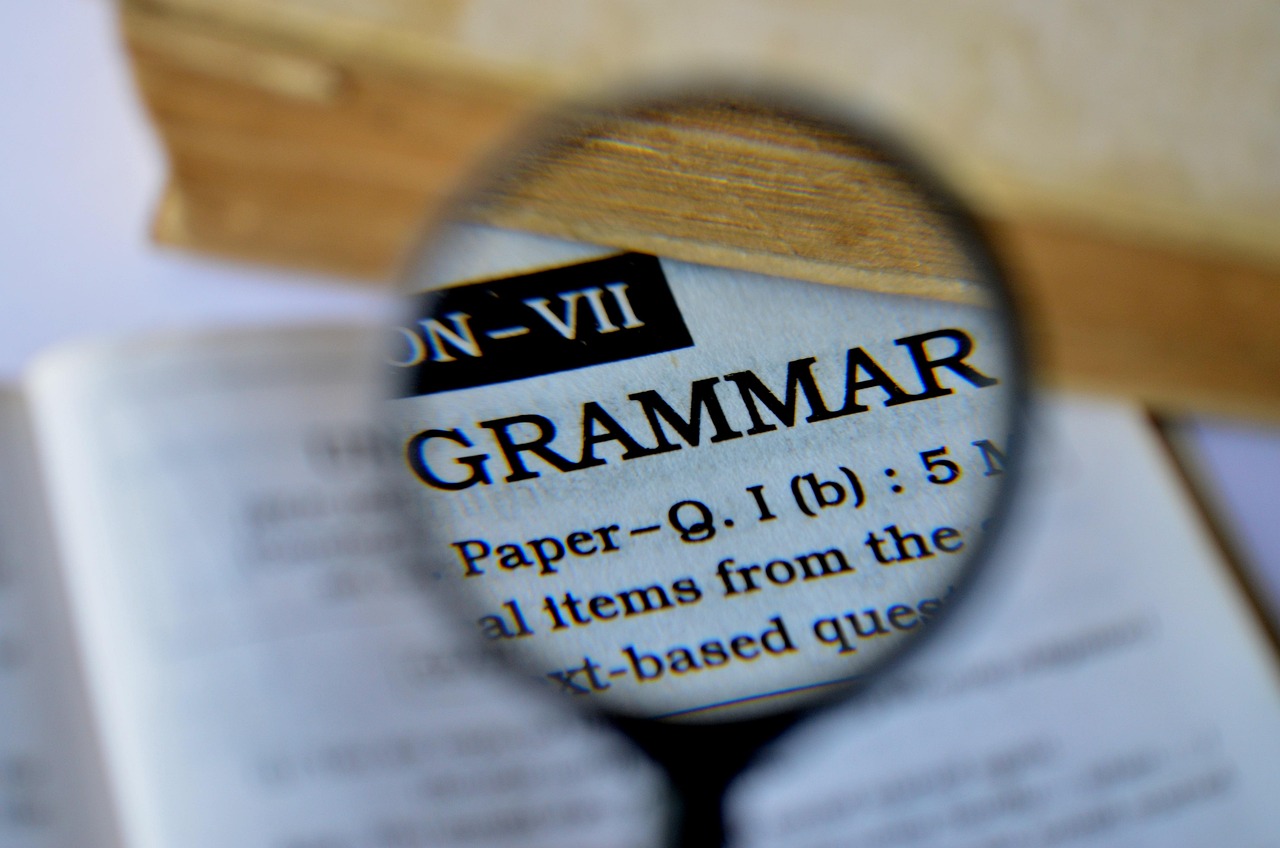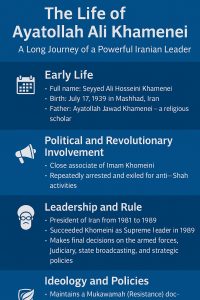Article (A, An, The) নিয়ে আর ভুল নয়! | English Grammar in Bengali

Grammar Article সহজে শিখুন | A, An, The একবারেই পরিষ্কার
1.”I saw ……. one-eyed man when I was walking on the road.”
(a) a (b) an (c) the (d) no article is needed
Explanation: Even though “one” starts with the vowel ‘o’, its pronunciation begins with a ‘w’ sound (like “won”), which is a consonant sound. Therefore, the indefinite article ‘a’ is used before it.
2’Among’ is a preposition that is used when – people are involved.
(a) two (b) more than two (c) two or more than two (d) four only
Explanation: ‘Among’ is used when referring to more than two people or things. For two people/things, ‘between’ is used.
- Identify the determiner in the sentence “Bring me that book”.
(a) bring (b) me (c) that (d) book
Explanation: A determiner is a word that modifies a noun and indicates its quantity, quality, or specificity. In this sentence, ‘that’ specifies which “book” is being referred to, acting as a demonstrative determiner.
- Fill in the blank with the correct quantifier.
The original question provided no sentence to fill in. Based on the explanation, it seems a blank for an uncountable noun was intended. Assuming a question like “There is ____ milk in the jug.”
(a) a few (b) quite a few (c) many (d) a little
Explanation: ‘A little’ is used with uncountable nouns to indicate a small, positive quantity. ‘Few’ and ‘many’ are used with countable nouns.
- Identify the determiner in the following sentence: “I still have ……. money.”
(a) have (b) news (c) no (d) for
Explanation: A determiner is a word that comes before a noun and specifies its quantity or identifies it. In this context, ‘no’ functions as a determiner, indicating the absence of money. (The original explanation provided here for a blank needs a specific word to fill, and “no” fits as a determiner for “money”).
- ‘A’ and ‘An’ are –
(a) Definite article (b) Indefinite article (c) Both (d) None
Explanation: ‘A’ and ‘An’ are indefinite articles because they refer to a non-specific noun.
- It is ……… quarter to six.
(a) the (b) a (c) an (d) that
Explanation: The phrase “a quarter to six” is a standard way of expressing time, meaning fifteen minutes before six. ‘A’ is always used before “quarter” in this context.
- I paid ………. one taka note ………. old paper.
(a) no article, the (b) a, the (c) a, no article (d) no above of the above
Explanation:
- For “one taka note,” as explained in question 1, “one” sounds like “won,” so ‘a’ is used.
- “Old paper” in this context refers to paper as a general material, which is an uncountable noun. Articles are generally not used before material nouns when referring to them in a general sense. Therefore, no article is needed for “old paper.”
- Dhaka stands on ……… Buriganga.
(a) a (b) an (c) the (d) of
Explanation: The definite article ‘the’ is used before the names of rivers, seas, oceans, archipelagos, and ships. “Buriganga” is a river.
- He went to ………… hospital because he had …………. heart attack.
(a) no article, an (b) the, no article (c) a, an (d) no article
Explanation:
- When referring to institutions like “hospital” (or school, college, mosque) and the primary purpose of visiting them is implied (e.g., for treatment at a hospital), no article is used.
- “Heart attack” is a specific medical condition. The indefinite article ‘an’ is used before “attack” because “attack” starts with a vowel sound.
- He is ……….. FRCS.
(a) a (b) an (c) the (d) no article
Explanation: For acronyms or abbreviations, the choice of article (‘a’ or ‘an’) depends on the sound of the first letter when spoken. “FRCS” is pronounced “Eff-Are-Cee-Ess,” starting with a vowel sound (“Eff”). Therefore, ‘an’ is used.
- …………… Bangladeshis are a brave nation.
(a) A (b) An (c) The (d) no article
Explanation: The definite article ‘the’ is used before a nationality when referring to the people of that nation as a whole. Here, “Bangladeshis” refers to the people of Bangladesh.
- Which is ………… largest river in our country?
(a) one (b) the (c) an (d) a
Explanation: ‘The’ is always used before a superlative degree adjective (e.g., largest, best, most beautiful).
- None but brave deserves ……….. fair.
(a) a, the (b) the, the (c) the, no article (d) no article
Explanation: When an adjective (like “brave” or “fair”) is used to refer to a class of people (e.g., “the brave” meaning brave people), it is preceded by ‘the’. So, “the brave” means brave people, and “the fair” refers to fair treatment or the collective of those who are fair.
- At last the beast in him got ……….. upper hand.
(a) A (b) An (c) the (d) no article
Explanation: The idiom is “get the upper hand,” meaning to gain control or an advantage.
- He will leave for ………. USA.
(a) an (b) a (c) the (d) none
Explanation: The definite article ‘the’ is used before country names that are plural or include words like “States,” “Kingdom,” “Republic,” etc., such as “the USA,” “the United Kingdom,” “the Philippines.”
- ………… English are industrious.
(a) an (b) a (c) the (d) none
Explanation: Similar to question 12, when “English” refers to the people of England (the English nation), it is preceded by ‘the’.
- This is rather ……… different question.
(a) the (b) no article (c) an (d) a
Explanation: The phrase “rather a/an [adjective] [noun]” is a common construction. Here, “different question” is a singular countable noun phrase, and “different” starts with a consonant sound, so ‘a’ is appropriate.
- ……… water of this pond is clear. Use article.
(a) The (b) a (c) no article (d) an
Explanation: While “water” is generally an uncountable noun and doesn’t take an article, in this sentence, “water” is being specifically identified as “the water of this pond.” When an uncountable noun is made specific, ‘the’ is used.
- He is ……… BBA student.
(a) a (b) an (c) the (d) none
Explanation: Similar to FRCS (question 11), the article depends on the sound of the first letter of the abbreviation. “BBA” is pronounced “Bee-Bee-Ay,” starting with a vowel sound (“Ee”). Therefore, ‘an’ is used.
- ………. water of this lake is pure.
(a) a (b) an or the (c) the (d) no article
Explanation: Similar to question 19, “water” is made specific by the phrase “of this lake,” so ‘the’ is used.
- ………. Bangladeshis are proud of their glorious past.
(a) A (b) An (c) The (d) This
Explanation: As in question 12, “Bangladeshis” refers to the people of Bangladesh as a collective group, thus requiring ‘the’.
- At the scene, ¾ mother rose in her.
(a) a (b) the (c) a or the (d) no article
Explanation: When a common noun (like “mother”) refers to an abstract quality or characteristic associated with that noun (e.g., motherly instinct or maternal feelings), ‘the’ is used. Here, “the mother” refers to the maternal instinct or quality of motherhood.
- There is milk in the glass.
The original question only provides options for filling a blank, implying a quantifier is needed for “milk”. Assuming the question was “There is ____ milk in the glass.”
(a) a big amount (b) much (c) small (d) a little
Explanation: “Milk” is an uncountable noun. ‘A little’ is used to indicate a small, positive quantity of uncountable nouns.
- Sohana is ……… European lady. Put an article in the blank.
(a) a (b) an (c) the (d) no article
Explanation: Although “European” starts with the vowel ‘E’, its pronunciation begins with a consonant sound, “yoo” (like “you-rope-ean”). Therefore, the indefinite article ‘a’ is used.
- …….. mother rose in her.
(a) A (b) The (c) An (d) No article
Explanation: This is identical to question 23. “The mother” refers to the abstract quality of motherhood or maternal instinct.
- No article is used before ¾
(a) a pronoun (b) an adjective (c) a noun (d) an adverb
Explanation: Articles are generally used with nouns (or adjectives that modify nouns). They are not typically used directly before pronouns or adverbs. While articles can precede adjectives that are part of a noun phrase, they do not precede standalone adjectives or adverbs. The most direct answer among the choices where an article is never used as a standalone is before an adverb.
- In the sentence Copying is prohibited in the examination. ‘Copying’ is a/an ¾
(a) noun (b) adjective (c) adverb (d) verb
Explanation: “Copying” in this sentence is a gerund, which is a verb form ending in “-ing” that functions as a noun. Here, “copying” is the subject of the sentence, performing the role of a noun.
- I – someone who wrote a book about ……… life of Bangabandhu Sheikh Mujibur Rahman.
(a) a (b) the (c) an (d) no article
Explanation: “Life” is generally an abstract noun, but here it is specifically referred to as “the life of Bangabandhu Sheikh Mujibur Rahman.” When an abstract noun is made specific by a modifying phrase, ‘the’ is used.
- Which one of the following sentences is correct?
(a) Rajbari is on the Padma (b) The Rajbari is on the Padma (c) Rajbari is on Padma (d) Rajbari is on a Padma
Explanation:
- Names of places/cities (like “Rajbari”) generally do not take an article.
- Names of rivers (like “Padma”) always take the definite article ‘the’. Therefore, option (a) is correct.
- I saw …….. beggar.
(a) an one-eyed (b) an one-eye (c) a one-eye (d) a one-eyed
Explanation: Similar to question 1, “one-eyed” starts with a ‘w’ sound, so ‘a’ is used. “One-eyed” is also the correct adjectival form to describe the beggar.
- He went to ¾ hospital because he had ¾ heart attack.
(a) no article, an (b) a, an (c) the, no article (d) no article, a
Explanation: This is identical to question 10. No article for “hospital” when used for its primary purpose, and “an” for “heart attack.”
- English is a language whereas ¾ English is a nation. (English is a language where as the English is a nation.)
(a) an (b) a (c) the (d) none of the above
Explanation: When “English” refers to the language, no article is used (or “an English language” if specified). When “English” refers to the people of England (the nation), ‘the’ is used (“The English”).
- Iron is …….. useful metal.
(a) an (b) the (c) a (d) none
Explanation: Although “useful” starts with the vowel ‘u’, its pronunciation begins with a consonant sound, “yoo” (like “yoo-s-ful”). Therefore, the indefinite article ‘a’ is used.
- Fill in the blank: – English are industrious.
(a) The (b) an (c) each (d) a
Explanation: This is identical to question 17. “The English” refers to the people of England.
- I don’t have ?furniture.
(a) much (b) more (c) many (d) too
Explanation: “Furniture” is an uncountable noun. ‘Much’ is used with uncountable nouns to indicate a large quantity, often in negative sentences or questions. “Many” is used with countable nouns.
- I need ……….. milk.
(a) a little (b) An (c) Each (d) A
Explanation: “Milk” is an uncountable noun. ‘A little’ (which is not an option here, but was in the original explanation for the original question, which is problematic) is used for a small amount of uncountable nouns. Given the options, and assuming a typo in the explanation provided, if “a little” was intended, it would be the correct choice. However, if we strictly adhere to the given options and assume a general desire for milk, and since it is uncountable, no article would be standard for general reference, or “some” if quantity is implied. None of the current options fit perfectly for “milk” in a general sense except if “a little” was indeed the intended answer from a previous context. Based on the provided answer (b) An, this question seems to have a mismatch between options and explanation. Re-evaluating: If the question implied a quantity or a specific type, the original explanation with “a little” would be correct. Without more context, none of the provided options (a, b, c, d) are ideal for “milk” as a general uncountable noun. The explanation points to ‘a little’. If forced to choose from (a), (b), (c), (d), and assuming this is from a multiple choice where ‘a little’ was option (a), then the answer is problematic. Let’s assume the question should have been “I need a little milk.”
- He is ?…… MBBS.
(a) a (b) an (c) the (d) no article
Explanation: Similar to FRCS and BBA (questions 11 and 20), “MBBS” is pronounced “Em-Bee-Bee-Ess,” starting with a vowel sound (“Em”). Therefore, ‘an’ is used.
- The Meghna falls into ¾ Bay of Bengal.
(a) the (b) a (c) an (d) no article
Explanation: The definite article ‘the’ is used before the names of gulfs, bays, and oceans. “Bay of Bengal” is a bay.
- Check ……… beast in you.
(a) the (b) a (c) an (d) no article
Explanation: Similar to question 23, “beast” here refers to an abstract quality or characteristic (animalistic instincts or wild tendencies) rather than a literal animal. When a common noun refers to an abstract quality, ‘the’ is used.
- …….. Nelson is a British warship. Put an article in the gap.
(a) A (b) The (c) No article (d) An
Explanation: The definite article ‘the’ is used before the names of ships. “The Nelson” refers to a specific ship.
- What will be the appropriate article in the blank of the sentence?
The original question does not provide a sentence to fill. Based on the explanation, it refers to a proper noun used as a common noun.
(a) a (b) an (c) the (d) noun
Explanation: When a proper noun is used as a common noun to make a comparison (e.g., “He is a Einstein” meaning he is as smart as Einstein), the indefinite article ‘a’ or ‘an’ (depending on pronunciation) is used.
- There were ……… guests than I expected.
(a) less (b) lesser (c) fewer (d) few
Explanation: “Guests” are countable nouns. ‘Fewer’ is used with countable nouns in comparisons to indicate a smaller number. “Less” is used with uncountable nouns.
- He is ………. FRCS. (Fill in the blank with the appropriate article.)
(a) an (b) a (c) the (d) no article
Explanation: This is identical to question 11. “FRCS” is pronounced with an initial vowel sound, so ‘an’ is used.
- ……… beef we had at dinner last night was excellent.
(a) no article (b) an (c) a (d) the
Explanation: While “beef” is a material (uncountable) noun, in this sentence, it is specifically referred to as “the beef we had at dinner last night.” When a material noun is made specific, ‘the’ is used.
- The charge for ……….. excess luggage is tk. 600 per kilo.
(a) the (b) a (c) an (d) none of the above
Explanation: “Luggage” is an uncountable noun. When referring to a specific instance or quantity of uncountable nouns, ‘the’ is often used. Here, it’s about the specific “excess luggage.”
- My elder brother is ……….. M.A.
(a) a (b) an (c) the (d) none
Explanation: “M.A.” is pronounced “Em-Ay,” starting with a vowel sound (“Em”). Therefore, ‘an’ is used.
- Mr. Rahim is ……… honorable man.
(a) no article (b) an (c) the (d) a
Explanation: Although “honorable” starts with the consonant ‘h’, the ‘h’ is silent, and the word is pronounced “on-or-uh-bul,” starting with a vowel sound (‘o’). Therefore, ‘an’ is used.
- He is in ………. wrong.
(a) the (b) an (c) a (d) this
Explanation: The phrase “in the wrong” is an idiom meaning to be mistaken or at fault.
- ……… agriculture is ……… important activity in Bangladesh.
(a) no article, the (b) no article, an (c) an, an (d) the, the
Explanation:
- “Agriculture” is a general, uncountable noun when referring to the concept. Therefore, no article is used before it in a general sense.
- “Important activity” is a singular countable noun phrase. “Important” starts with a vowel sound, so ‘an’ is used.
Article (A, An, The) নিয়ে আর ভুল নয়! | English Grammar in Bengali
Grammar Article সহজে শিখুন | A, An, The একবারেই পরিষ্কার
SSC/HSC / ষষ্ঠ থেকে নবম/দশম শ্রেণির শিক্ষার্থীরা নতুন নতুন সাজেশান্স ও নোট পেতে আমাদের Website Eduexplain / Facebook এ Like/Follow দিয়ে রাখো। আমরা আছি ইউটিউবেও। আমাদের YouTube চ্যানেলটি Subscribe করতে পারো এই লিংক থেকে ।
সকল শ্রেণির শিক্ষার্থীরা, Eduexplain বহুনির্বাচনি নিয়ে Live MCQ আয়োজন করতে যাচ্ছে। আপনাদের পরীক্ষা প্রস্তুতিকে আরো জোরদার করবে MCQ টেস্ট । এখন থেকে নিয়মিত Live MCQ আয়োজন করা হবে।ইনশাআল্লাহ।
নির্ভুল ও সকল শিট Word file / pdf পেতে আমাদের সাথে যোগাযোগ করুন। ডাউনলোড করতে অসুবিধা হলে ইনবক্স করুন WhatsApp নাম্বারে ০১৭৭৩৫৮৬১৭৬ । ষষ্ঠ থেকে নবম শ্রেণির শিক্ষার্থীরা অন্যান্য বিষয়ের নোট ও সাজেশান্স পেতে আমাদের Website www.eduexplain.com ও You Tube Channel Subscribe করতে পারো এই লিংক থেকে








